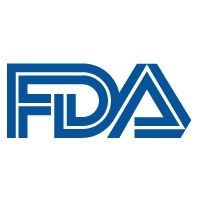Article
FDA Approves New Flu Treatment from BioCryst
Author(s):
Rapivab (peramivir injection) is an intravenous neuraminidase inhibitor approved for the treatment of acute uncomplicated influenza in patients 18 years and older.

BioCryst Pharamceuticals Inc. announced Monday that the US Food and Drug Administration (FDA) has approved Rapivab (peramivir injection), an intravenous (IV) neuraminidase inhibitor for the treatment of acute uncomplicated influenza in patients 18 years and older who have been symptomatic for no more than two days.
In a news release from the company, Jon P. Stonehouse, President & Chief Executive Officer of BioCryst, said the approval of Rapivab “provides a new choice to immediately deliver an effective treatment in one dose to adult patients with influenza.”
The FDA approved Rapivab based on information from 27 clinical trials involving more than 2,700 patients treated with peramivir. IV peramivir has been approved in Japan and Korea since 2010, and it is estimated that more than one million patients have received peramivir treatment to date.
According to Richard Whitley, MD, University of Alabama at Birmingham, Rapivab is “the first neuraminidase inhibitor that has shown to be safe and effective as a single-dose, IV therapy for patients with acute, uncomplicated influenza, and represents the first new antiviral treatment for influenza approved by the FDA in 15 years.” He also said that a single dose of Rapivab “alleviated flu symptoms, and reduced fever significantly faster than placebo” in a blinded, randomized placebo-controlled trial.
The recommended dose of Rapivab, in most adult patients 18 years of age or older with acute uncomplicated influenza, is a single 600 mg dose administered via intravenous infusion for 15 to 30 minutes.
The product information for Rapivab notes that rare cases of serious skin reactions, including Stevens-Johnson syndrome and erythema multiforme, have occurred in patients treated with the drug. Post-marketing reports from Japan indicate that delirium and abnormal behavior leading to injury has occurred in patients with influenza who were receiving neuraminidase inhibitors, including Rapivab.
The most common adverse reaction associated with Rapivab treatment is diarrhea. Other adverse reactions that occurred more often during trials in patients treated with Rapivab than in patients who received placebo include elevated ALT 2.5 times the upper limit of normal, elevated serum glucose greater than 160 mg/dL, elevated CPK more than 6 times the upper limit of normal, and neutrophils less than 1.0 x 10^9/L.
BioCryst is also currently developing with federal funding an experimental antiviral drug, BCX4430, against Ebola and Marburg virus diseases. Earlier this month it was reported that BioCryst announced the dosing amounts for the first human trial of BCX4430. It will be tested on up to 88 healthy volunteers for safety and tolerability only, not for effectiveness.





